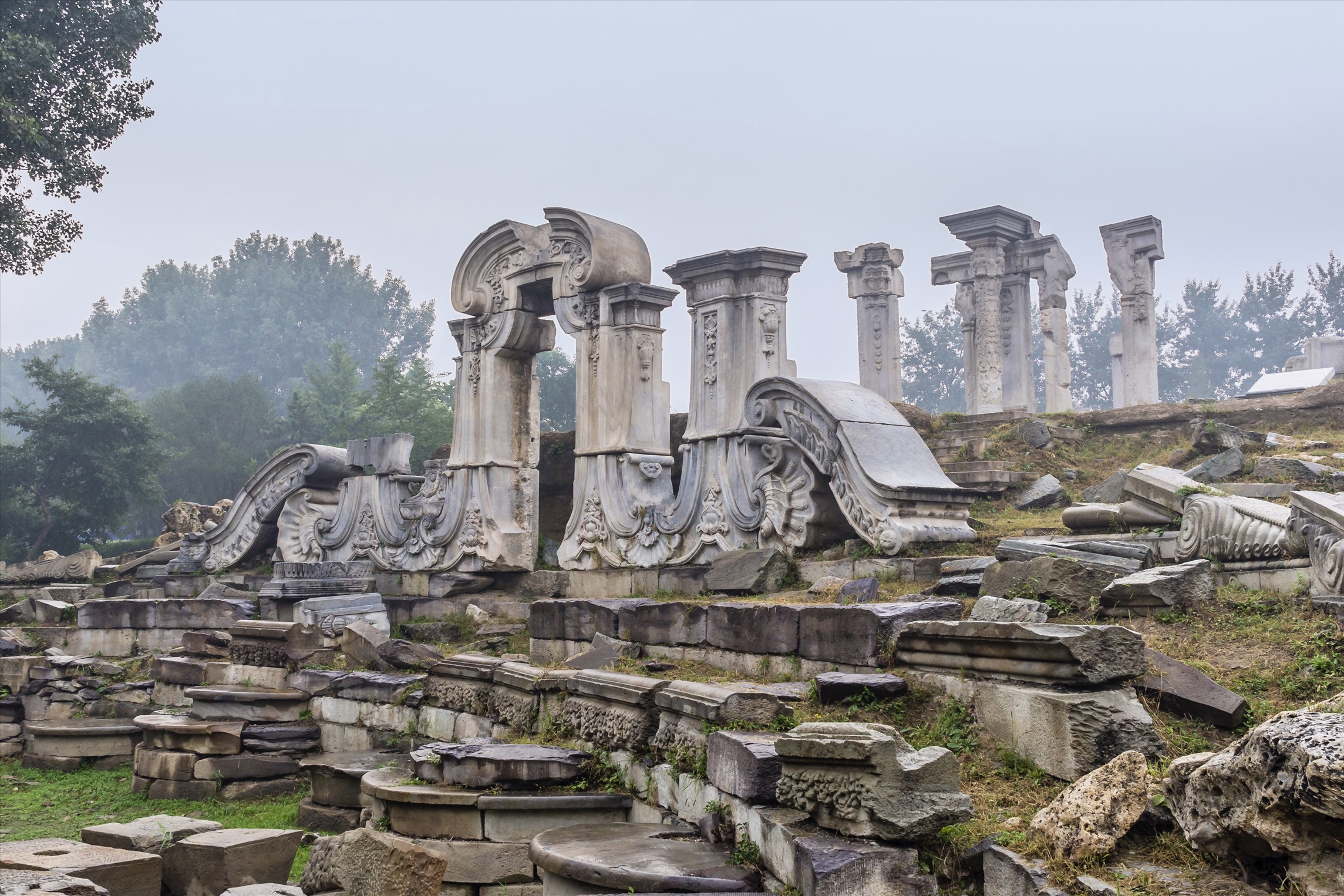
The construction of Yuanmingyuan began in 1707 during the reign of Emperor Kangxi (1654-1722), and went on throughout the next century.
It was approximately five times the size of the Forbidden City.
Yuanmingyuan was known as the "garden of gardens" for its gardens and palaces as well as its temples, pavilions and galleries.
Many famous gardens from Jiangnan area in southern China were reproduced in Yuanmingyuan, and Western architectural styles also got mixed in.
The most visible remnant of Yuanmingyuan today is the Xiyang Lou (Western Mansions). This group of European-style palaces, fountains and gardens was planned by Giuseppe Castiglione, an Italian missionary.
A fountain, which had bronze heads of the 12 animals in the Chinese zodiac spouting water, was the best known icon of this section.
Besides functioning as an imperial resort, Yuanmingyuan was also a place where four Qing emperors (Qianlong, Jiaqing, Daoguang and Xianfeng) handled the affairs of state.
Yuanmingyuan was burned down by Anglo-French expedition forces in 1860.
Though it was proposed to be reconstructed during the reign of Tongzhi (1862-74), the plan was dropped due to the lack of money.
During an invasion by the Eight-Nation Alliance in 1900, Yuanmingyuan was hit again by bandits.
In 1988, the Yuanmingyuan Ruins Park was set up to better protect the site.




